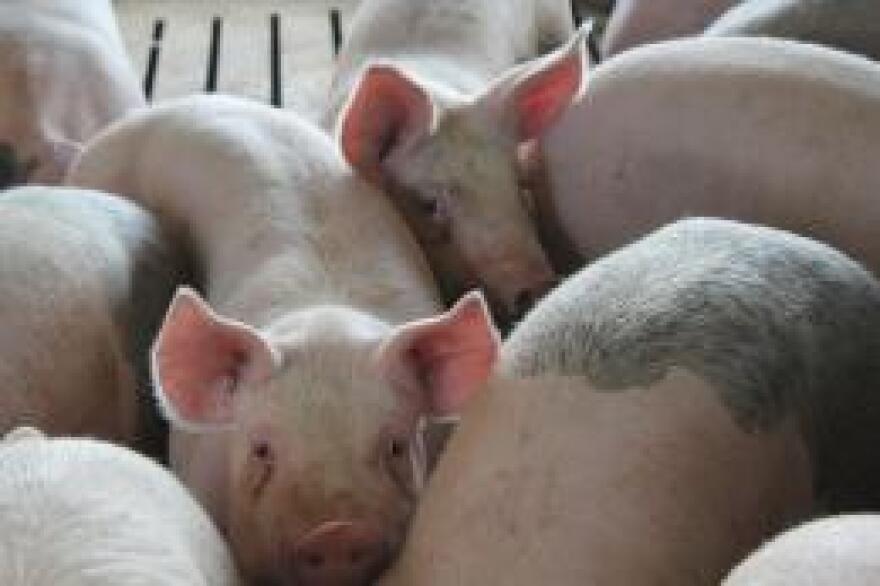Bacon and pork chops could become cheaper this year thanks, in part, to fewer pigs getting sick with the virus that devastated hog farms in 2014.
The infection rate of porcine epidemic diarrhea virus reached its peak in February and March of last year, killing millions of piglets and sending summer pork prices soaring as fewer hogs reached the market.
Infections decreased significantly by summer and have stayed lower. Still, veterinarians are cautioning producers to stay on guard.
“Before we pat ourselves on the back too much we have to see what the next two or three months bring us and really remain vigilant,” said swine veterinarian Matt Anderson of Suidae Health and Production.
Anderson said the lower rates of infection show that producers, truck drivers and others in the industry are working hard to keep barns and trucks disinfected and to limit contact between farms.
But he adds that no one has figured out how the virus managed to appear almost simultaneously in farms far away from each other. Nor how it jumped to Hawaii.
“We still have things relative to the spread of PED that concern me very deeply,” he said. “And I’m not sure that as an industry we have a good handle on that.”
Some hog farmers less impacted by PED deaths may lose a little profit this year if prices come down, but all will view the slowing spread of the disease as good news.
And so will shoppers at the meat counter.















